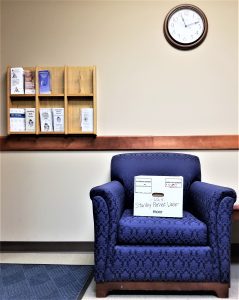IHS doctor found guilty
 RAPID CITY – A federal trial jury here convicted former Pine Ridge Indian Health Service pediatrician Stanley Patrick Weber on Sept. 27 of all 11 criminal counts charging him with sexually abusing four boys while employed as a physician at Pine Ridge Indian Health Service from 1995 to 2011.
RAPID CITY – A federal trial jury here convicted former Pine Ridge Indian Health Service pediatrician Stanley Patrick Weber on Sept. 27 of all 11 criminal counts charging him with sexually abusing four boys while employed as a physician at Pine Ridge Indian Health Service from 1995 to 2011.
Prosecuting Assistant U. S. Attorney Sarah Collins told the jury that Weber’s “prolific sexual abuse of young men for 18 years” was due to “a perfect recipe:”
He carefully selected boys facing problems, isolated them alone, knowing they were susceptible to shame and embarrassment, and groomed them to meet his needs, she said.
This was a case of “a doctor versus patients, an adult versus children, the powerful versus the weak,” Collins said in closing statements. “When he got to Pine Ridge,” Weber “was emboldened” by his previous activities in Montana, she said.
A separate federal trial jury there convicted him in 2018 of crimes stemming from his engagement in sexual acts with two boys, beginning in 1992 when he was working for Indian Health Service in Browning, on the Blackfeet Indian Reservation.
The Rapid city jurors, a panel of eleven, reached a unanimous verdict of guilty on each count of the 2017-2018 federal indictment within four hours after closing statements ended at 11 a.m. in Chief Judge Jeffrey L. Viken’s South Dakota U.S. District Court.
The verdict followed two days of testimony in which survivors from both the Blackfeet and Lakota nations, now adults, repeatedly broke down on the stand as they responded to attorneys’ questions about what Collins called “the sex they were subjected to when they were kids.”
Witnesses and attorneys painted a picture of Weber as a masochist who preferred sex and violence perpetrated upon him, but who forced himself upon the minors in order to achieve his ends, after luring them with money, alcohol, drugs, and other rewards.
Defense attorney Harvey Steinberg noted, however, that each case was different. He claimed that investigators did not exhaust the means of corroboration or conduct the interviews necessary to verify and prove each charge beyond a reasonable doubt.
Conducting the investigations were the Health and Human Services Office of Inspector General, the Bureau of Indian Affairs Office of Justice Services, the Internet Crimes Against Children Taskforce, the Rapid City Police Department, the Spearfish Police Department, and Montana authorities.
Weber, 70, is in prison serving an 18-year sentence meted out by Montana U.S. District Judge Brian Morris in January for the conviction there. He faces up to a life sentence for the one in South Dakota.
Steinberg is appealing the Montana conviction and sentence. He could not be reached before press time regarding whether he will appeal the South Dakota guilty verdict.
Unlike the subjects in the Blackfeet case, those in Lakota Territory are qualified to seek monetary reparations from the federal government, because they have the protection of the 1868 Ft. Laramie Treaty, according to Rapid City Indian law practitioner James D. Leach.
If they press charges within a certain timeframe specific to each one, “Any person, including a child who was abused sexually by Dr. Weber, may have a substantial claim against the federal government for monetary compensation under the 1868 treaty.” Leach told the Native Sun News Today.
The Rapid City barrister established that the “Bad Men Among the Whites” clause in the 1868 Ft. Laramie Treaty between the U.S. government and signatories of the Great Sioux Nation makes a tribal member who suffers a crime at the hands of a non-tribal member on an Indian reservation eligible for federal reimbursement.
Found in Art. 1 of the treaty, the clause states: “If bad men among the whites, or among other people subject to the authority of the United States, shall commit any wrong upon the person or property of the Indians, the United States will, upon proof made to the agent and forwarded to the Commissioner of Indian Affairs at Washington City, proceed at once to cause the offender to be arrested and punished according to the laws of the United States, and also reimburse the injured person for the loss sustained.”
The ruling Leach obtained applies not only to the Ft. Laramie Treaty signatory tribes, but also for others that have “Bad Men Among the Whites” language in their treaties: the Navajo, Kiowa, Comanche, Cheyenne, Arapahoe, Ute, Crow, Northern Cheyenne, Northern Arapahoe, Shoshone, Bannock, and Apache.
Survivors of childhood sex-abuse may be leery of seeking treaty-based compensation, Leach admits. “The biggest impediment is that people just don’t want to talk about it because it’s humiliating,” he says.
On the other hand, he notes, “The reason that people might want to bring a claim is because if the federal government has to pay money, it will be less likely to send out someone like Dr. Weber in the future.”
The abused party or a parent or guardian can discuss a potential case with the lawyer in absolute confidentiality before deciding whether to proceed with a claim. “Unless they choose to go forward with it, I am bound by law to say nothing to anyone,” Leach asserts.
(Contact Talli Nauman at talli.nauman@ gmail.com)
